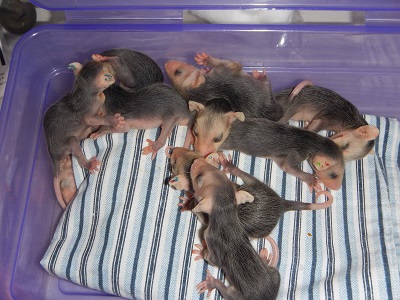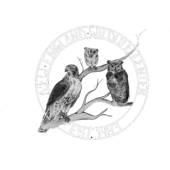Barnstable is lucky to be the home of the Cape Wildlife Center, the only veterinary hospital and rehabilitation center that treats all wildlife on Cape Cod.
This center is open seven days a week to receive sick, injured, or orphaned animals from the public and from animal control officers. Its mission is to care for and rehabilitate every animal admitted in hopes of releasing it back to the wild for a life of freedom. Last year the center admitted over 2,200 animals and fielded over 10,000 animal-related phone calls from the public. The center also bring programs to schools and to many public events to help people understand and live with the results of wildlife-human conflict.

Each month this new column will tell you about the admissions the center has received and the successful releases. It will also highlight interesting wildlife stories and share some tips for living successfully with the wildlife in your neighborhood.
In the month of July, Cape Wildlife Center admitted 362 animals, of which 42 were successfully rehabilitated and released. Many of those admitted still remain in treatment.
One memorable admission this month was a litter of 14 orphaned opossums. This was a case of everyone doing the right thing to best insure their survival. A good Samaritan found the mother opossum hit by a car, dead on a road. They checked the pouch for babies and found 14 tiny babies with eyes closed and no fur, but alive. They kept them warm and quiet and notified animal control, which then transported the babies to CWC.
The babies weighed between 25 and 32 grams (a nickel weighs 5 grams). They were examined for injuries, given fluids under their skin to help rehydrate them, and put together in an incubator. After they were stable, they began being fed every 2-3 hours. Opossums need a special formula and all have to be fed by a tube put down their throat. They do not have a suckle response because normally they would just remain attached to a teat in the mother’s pouch.
After being fed, the caregiver would stimulate them to urinate and defecate. They would then go back in the incubator and this procedure would get repeated in another two hours.
The opossums will remain at the center until they are able to eat on their own and are 10-inches long. That is when they will be released in a safe spot away from roads with lots of ground cover and trees, and a fresh water source.
Every opossum we save gives back to us by controlling the tick population. They can eat thousands of ticks that could bite and pass on Lyme disease.
Opossums are not aggressive, they do not carry rabies, and generally do not attack. If you have an opossum living in your yard, you are one of the lucky ones. They will help manage your tick and insect population, eat rodents, and manage your pests. Last but not least, they are adorable to watch.
To learn more about the Cape Wildlife Center or help in their mission, visit www.capewildlifecenter.com or call 508 362-0111.
Caryn Ritchie is the volunteer coordinator for the Cape Wildlife Center and holds both a Massachusetts wildlife rehabilitator’s license and a federal permit to rehabilitate migratory birds. This is a repost of an article from The Barnstable Patriot which you can read here.

Recent Comments